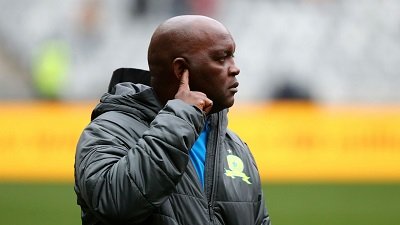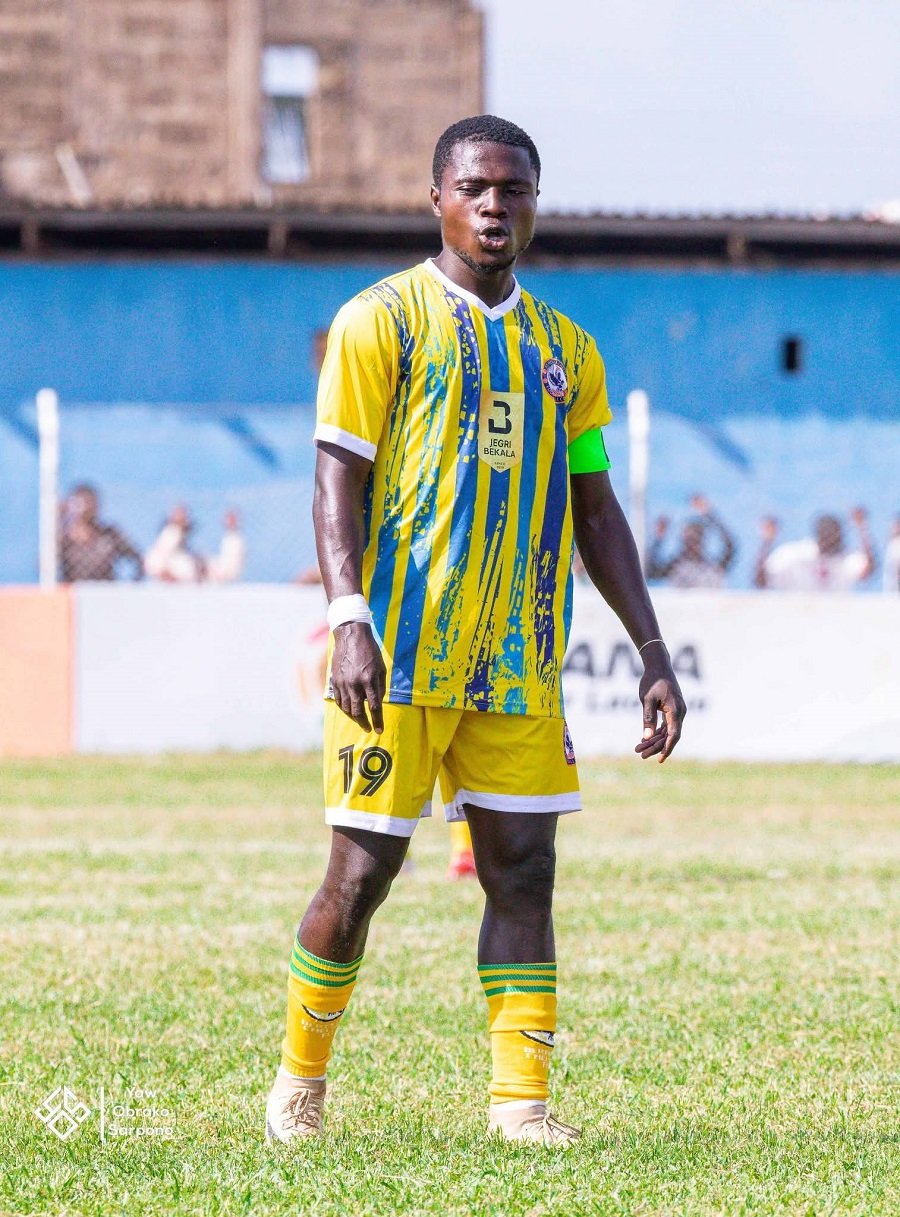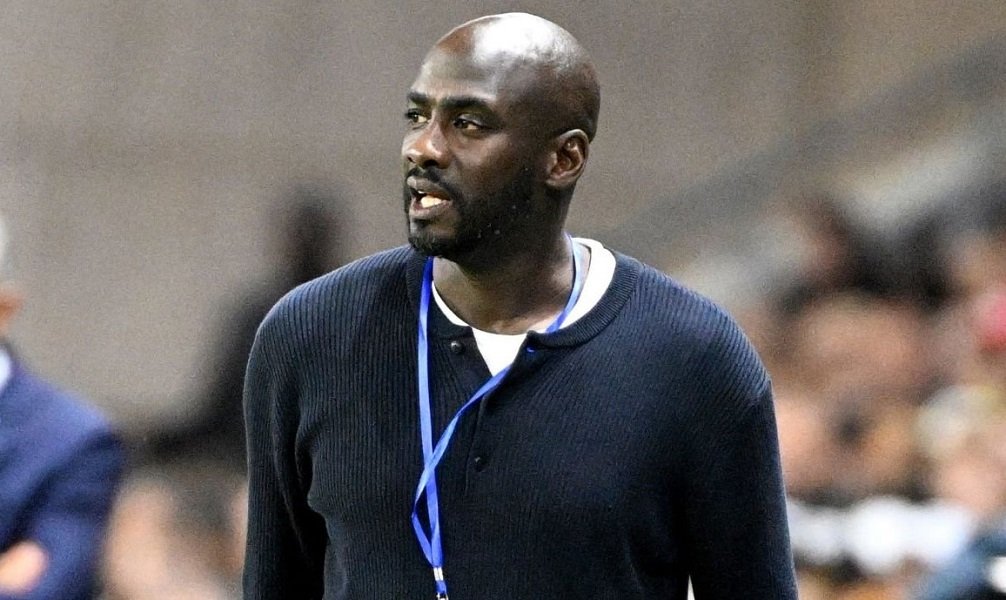Sports
Ahly coach’s concern for Ghana football!

ONE of the continent’s most successful coaches – South Africa’s Pitso Mosimane, is dumbfounded about the ‘free fall’ of Ghana’s two biggest clubs – Asante Kotoko and Hearts of Oak, on the continental front.
Speaking to Joy FM in Accra on Monday, the Al Ahly of Egypt ‘sweat merchant’ wondered about the position of the two clubs in Africa, regretting they could not make it into the group stages of the CAF Inter-club competitions latterly.
Hearts and Kotoko were one of the giants of continental football. No more. So appalling has been their output to the extent that the Confederation of African Football (CAF) no longer considers them worthy, having slashed Ghana’s three-club representation in the CAF competition to two (one for Champions League and the other Confederation Cup).
In the last decade or so, only one Ghanaian club (Berekum Chelsea. 2012) ever made into the group stage of the CAF Champions League. Kotoko also managed a place in the group stages of the Confederations Cup in the 2018/19 season. Certainly, this cannot be anything to be proud about – and the highly-rated Mosimane is bowled-over about the level of slump.
“Where are the Porcupine Warriors (Kotoko)? They used to terrorise everybody. Where is Phobia (Hearts)? Where are those teams? When these two teams play in Ghana, the streets are closed. Where are those teams in the Champions League? Where are the top talents,” the celebrated coach, who won the 2016 CAF Champions League with Mamelodi Sundowns and clinched same trophy twice (2020 and 2021) with Al Ahly, quizzed.
A nation’s football strength and solidity is evidenced by its performance at the international level with regard to club level. Truth is that at present, our club football is in comatose!
That for 16 years, no Ghanaian club have won any continental fleece should be of huge concern to all.
Hearts clinched the CAF Champions League in 2000 – 22 years ago, topping up with the CAF Confederation Cup four years later. Great achievement, but that is all there is to it. For Asante Kotoko, their last continental feat was in 1983 when they annexed the African Clubs Championship trophy (now CAF Champions League); that feat happening 13 years after their maiden conquest.
Ever since, both Hearts and Kotoko have failed to re-enact their past glory after a panoply of second-rate attempts.
As far back as December 14, 1997, Obuasi Goldfields (now AshantiGold SC) dazzled their way to the CAF Champions League finale, losing narrowly to Morocco’s Raja Casablanca 5–4 on penalties at the Stade Mohamed V in Casablanca – the two legs failing to produce a winner (1-1).
Three years later came the Hearts’ accomplishment.
The slump may have hit its apogee last year and showcased why the Ghana Football Association (GFA) and Ghanaian clubs must take a back seat for a while, do a very deep introspection and self-absorption before endeavouring to embark on another ‘useless’ adventure.
As you may have been aware, Hearts were flushed out of their African campaign in the most disgraceful manner.
After taking a 2-0 lead in the play-off stage of the CAF Confederation Cup, Hearts dashed for the return leg encounter full of beans, bright-eyed and bushy-tailed, against Algeria’s JS Saoura – only to be hammered 4-0 after a rather shambolic performance to bow out 4-2 on aggregate.
A month earlier or so, Hearts were whitewashed 6-1 in the preliminary stage of the Champions League by WAC of Morocco, after winning the opening fixture in Accra 1-0.
Conceding 10 goals in two away games against North African oppositions was as embarrassing as ego-battering.
For a side that once dominated Africa and went into the campaign as Ghanaian champions, last year’s exit was pure degradation.
It must be reiterated that the performance of our clubs in Africa has for some time now been nothing to write home about. It is, perhaps, the cumulative effect of low investment and poor player quality.
According to the South African coach, the way forward is to ensure that the necessary vibe is created among fans, whilst the private sector also endeavour to invest into the game (league), develop the home-grown players and bring in good players from other countries.
True, most of our premier clubs, today, have no corporate sponsorship and with pitiable attendance at games, clubs are compelled to sell their marquee players to their foreign counterparts for survival.
So, how do such clubs hope to compete on the same platform with their counterparts on the continental stage? Absolutely possible!
Our clubs ought to accept the fact that the game has changed completely. It is now more capital-intensive than before. The planning and organisation of the game, too, is more demanding than used to be the case. Interestingly, we expect to reap a different result after doing same thing over time. It does not work like that.
Certainly, our local game is in some sort of crisis and the GFA and its stakeholders may have to meet and find an productive panacea to reviving its dwindling fortunes.
By John Vigah
Sports
Chelsea Host Hearts in Berekum

Attention will be at the Golden City Park in Berekum tomorrow as Hearts of Oak lock horns with Berekum Chelsea FC in a Ghana Premier League Matchday 6 game that promises an electrifying atmosphere.
Lying sixth on the league table with two wins and three draws, the Phobians visit a ground that has been favourable to them in recent times. In their last three visits to the Golden City Park, Hearts have amassed seven out of nine points, putting them in strong contention to win.
Head Coach Mas-Ud Didi Dramani says, “The team is making progress in its tactical identity despite the lack of goals, and this is something we are working on ahead of this game.”
Hearts will come face-to-face with former coach Samuel Boadu, whose side lies a distant 13th on the league table with a win and a draw from four games. Coach Boadu is yet to celebrate a victory over the Phobians since joining the Berekum lads and would hope this fixture marks a turnaround.
Ninth-placed Vision FC would trek to the Nana Fosu Gyeabour Park in Bechem to play Bechem United, while new boys Hohoe United host Aduana FC at the Hohoe Sports Stadium.
Returnees Swedru All Blacks will welcome Basake Holy Stars to the Swedru Sports Stadium, with defending league champions Bibiani Gold Stars staying put at their backyard, the Dun’s Park, to welcome second-placed Heart of Lions FC on Monday.
Today at the TnA Stadium in Tarkwa, Medeama SC will clash with Samartex FC in a Western derby. Other games scheduled for today would see Eleven Wonders FC host Karela United at the Swedru Sports Stadium, while Dreams FC face Nations FC at the Tuba Astro Turf.
By Raymond Ackumey
Join our WhatsApp Channel now!
https://whatsapp.com/channel/0029VbBElzjInlqHhl1aTU27
Sports
How Otto Addo Turned Critics Into Fans (1)

Ghana coach Otto Addo may not command the kind of fear and respect like Pep Guardiola, Jose Mourinho, Carlo Ancelotti, Luis Enrique and others in the modern game, but in his small corner, he is gradually climbing the ladder to greatness in Ghana, Africa and the world at large.
The aforementioned coaches attained greatness with club sides and, therefore, open an argument over whether one is not comparing apples to oranges. But no matter how one looks at it, they are all coaches harbouring similar ambitions to attain greatness in their fields.
Otto Addo is one of the young and upcoming coaches holding a lot of promise and was getting experience with his association with Borussia Dortmund in Germany until his path was directed by a Ghana call.
Although he was born in Germany, Otto Addo’s association with Ghana football dates back to 1999, spanning a period of about seven years; commencing with a 5–0 rout of Eritrea on February 28. He gained international prominence when he joined the squad for the 2000 African Cup of Nations. He featured as a midfielder in the team for the 2006 FIFA World Cup.
But like it’s often said, a prophet is not recognised in his own home and his efforts partially went unnoticed. He’ll go into the annals as one of the Black Stars coaches to have been fairly or otherwise criticised not just by ‘football people’ but fans who doubted him.
His sack has been discussed at various platforms by people whose knowledge and tactical acumen about the game remains questionable. Ghana’s Minister for Sports and Recreation, Mr Kofi Adams, at one point openly stated his doubts over Otto Addo’s ability to actually deliver.
No coach would feel secured in such turbulent times, but coach Otto Addo kept his calm and composure. On the corridors of his employers, however, the Ghana Football Association (GFA) president, Kurt Okraku, openly rallied support for him, though a few ‘doubting Thomases’ still questioned his credentials.
That painted a picture of a people that forget easily and are quick to crucify. In a brief moment of adversity, Ghanaians forgot how Otto Addo was brought in to pluck qualification for the Qatar 2022 FIFA World Cup from the jaws of the Super Eagles of Nigeria with a solitary goal over two legs.
The upshot of that feat was not one any Nigerian would want to remember. The scenes after the match were awfully chaotic, as fans vented their anger on facilities at the stadium. Back in Ghana, it was partying all night and day.
Otto Addo was labeled the football magician. He achieved something no Ghanaian coach had ever accomplished; a feat which Ghana with her all-time best teams could not attain. That was the climax to which Otto Addo took Ghana football, generating calls to start believing in the Ghanaian coach.
Following that to the World Cup proper was another story altogether. It was, or may have been, our poorest show at any of the four World Cup appearances. And just as it was stipulated in his contract, he bowed out after the Qatar World Cup to mind his Borussia Dortmund business with peace.
But as fate would have it, nature found a way to renew his romance with Ghana football after an unconvincing start to the America, Canada and Mexico dream World Cup under special advisor turned coach, Chris Hughton.
Ghana started the qualifiers on a winning note but not a convincing performance. It was saved by an Inaki Williams goal scored on the sixth minute of additional time against Madagascar at the Baba Yara Sports Stadium. The Black Stars then slumped to a 1-0 defeat at the Stade de Moroni to Comoros to heighten calls for a new technical direction.
Then stepped in Otto Addo when Ghana occupied the fourth position in Group I with three points but with the countries in the group evenly matched.
By Andrew Nortey






